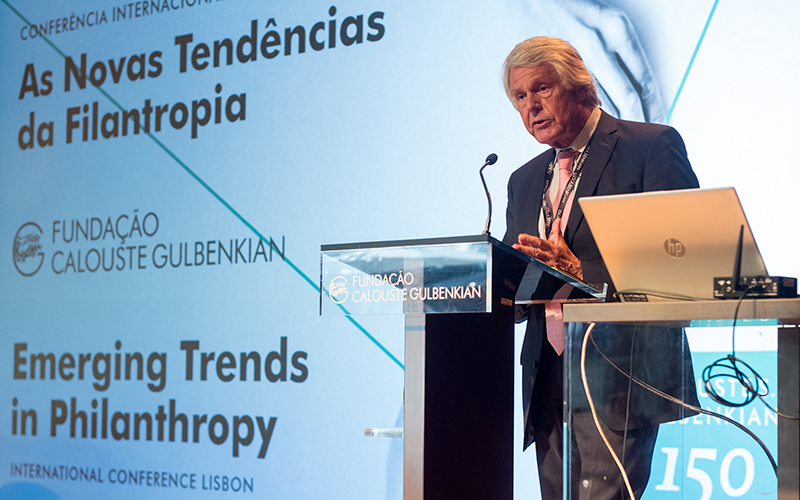Philanthropy, what future?

Around the world, there are over 260,000 foundations, 75% were founded in the last 25 years and 44% of them emerged on the 21st century. Given such numbers, Isabel Mota, President of the Gulbenkian Foundation, at the opening of this conference, sought to highlight the far reaching transformational movement in philanthropy that is now ongoing, with new actors emerging, new means of implementation as well as new financial instruments.
This movement is being led by new leaders arriving from the technological and digital worlds that are themselves transforming the dynamics of societies and a world in which this Foundation has paid attention through deploying a new R&D agenda as a tool for achieving its goals. Foundations have indeed begun investing according to different functional logics and furthermore depending on new forms of financing; Isabel Mota specifically pointed to impact investment (that combines financial returns with social impacts) as an opportunity to discuss a new model of capitalism. The Foundation is attentive to this movement and accompanying its step-by-step growth.
Give but also invest
“Were Calouste Gulbenkian still alive, he would probably be open to new realities”, was the introduction by Rien van Gendt, the senior consultant to the Gulbenkian Foundation Board of Directors who, while guaranteeing total respect for the past, identified five major trends that need paying attention to in the future:
Trend no. 1
Moving on from “simply giving for a combination between giving and investing”. While certain situations require donations, others need loans in order to stimulate entrepreneurship. The social return is important, he said, but what mattered was not ignoring the potential financial return.
Trend no. 2
Ending with the financing of projects in order to finance broader reaching programs, with greater sustainability, seeking to guarantee that “a grant holder is able to transform the organisation over the course of time”.
Trend no. 3
Evidence based philanthropy. Foundations are increasingly interested in identifying the causes and implications of a problem and less in approaches based on “sophisticated forms of intuition”.
Trend no. 4
Working in partnership with other foundations and associations, based on functionality (and not on the beliefs and convictions). This enables the grouping of resources and effective and holistic approaches to problems, van Gendt asserted.
Trend no. 5
Foundations cannot be in every place, dealing with a panoply of disparate and very often unconnected activities. In order to be more efficient, they should instead focus their attention on translating ideas into programs.
However, more important than these trends, van Gendt warned, is the social, economic and political context in which they take place and that is under constant mutation. There are, he noted, new circumstances and challenges to take into account: the migration crisis, the growth in populism, the nationalisms, inequalities, religious conservatism, the dilemma of security versus privacy and freedom, environmental sustainability and the overall political reconfiguration.
And he continued: “Foundations cannot and should not substitute governments. We have to be far more explicit in relation to our added value. We have to rebuild trust and demonstrate that our private money is destined for the public good along with our potential to assume risks and our independence. We have a distinct role to perform and we are transparent in relation to this (…) Legitimacy, in my opinion, will be the most strategic issue in the future. The key is beginning to listen and involve the communities that we say we serve”, he concluded.
Throughout the day, there were many interventions around the issues posed by these new trends in philanthropy but they were unanimous in agreeing that philanthropic institutions were at a turning point. Dawn Austwick, of the British National Lottery Fund, for example, referred to Brexit and its causes before coming out against the United Kingdom leaving the European Union taking place due to a reaction against immigration and racism. “I feel that this is more a question of a loss of hope, loss of trust, feelings of exclusion, of [people] feeling as if discarded.” Migration, populism, sustainability… the context is in permanent mutation. There is thus the need to be attentive and know how to listen (and include) those that the foundations serve in order to understand how to accompany and act when faced by the realities undergoing constant change that we today experience.
